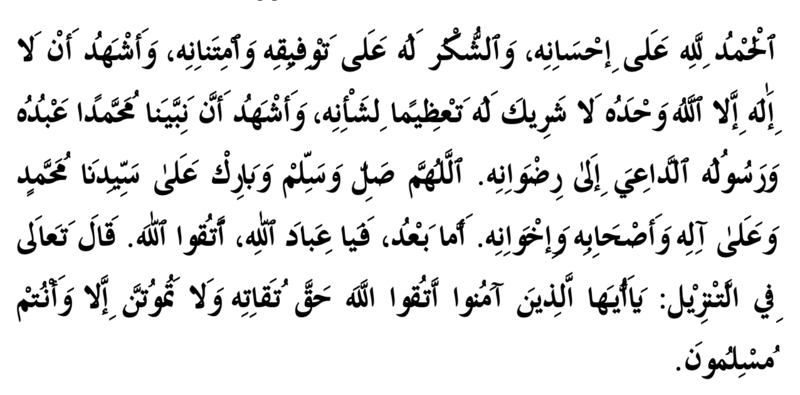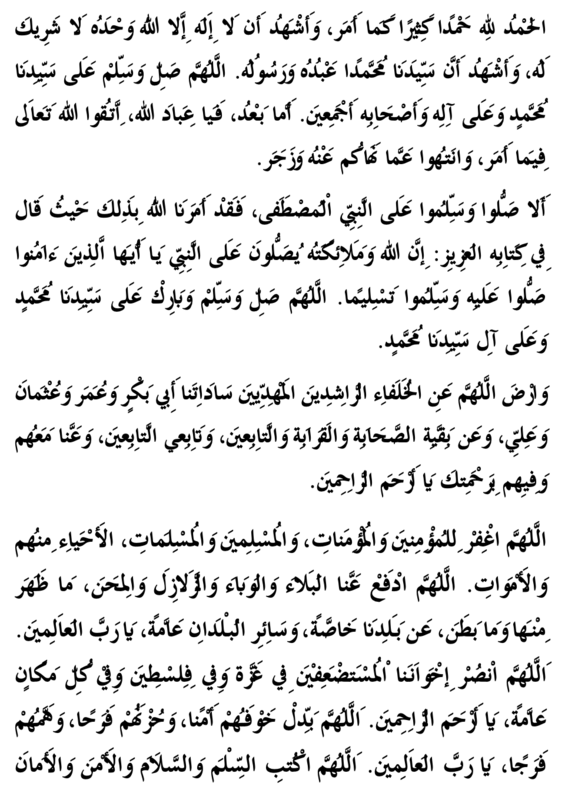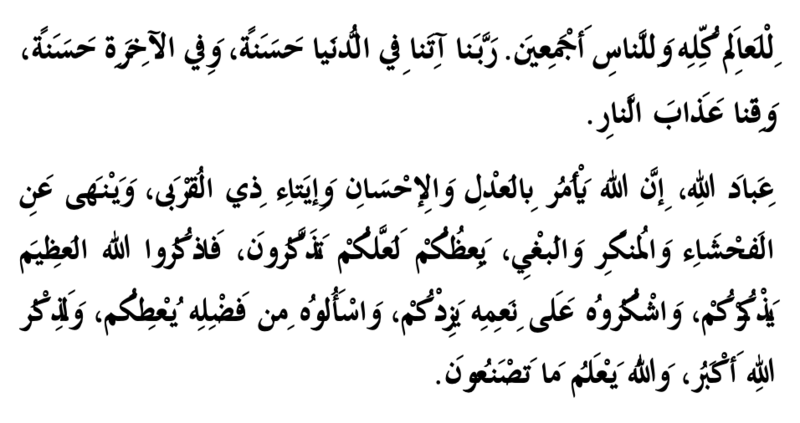

Majlis Ugama Islam Singapura
Friday Sermon
12 September 2025 / 19 Rabiulawal 1447H
Wasatiyyah: The Golden Trait of Our Ummah

Dear blessed congregation,
Let us instil in ourselves taqwa of Allah s.w.t. by striving to fulfil all His commands and avoiding all His prohibitions. May Allah s.w.t. reward our sincere efforts in demonstrating obedience to
Him with beautiful gardens in Paradise. Amin, ya Rabbal ‘Alamin.
My dear brothers,
In the birth month of the Prophet s.a.w., we express our love and respect for him in various ways. Some of us prefer to express our love in quiet solitude, while others find joy in expressing it through lively mawlid celebrations.
These differences reflect the diversity of scholarly opinions within our religion. Even the companions of the Prophet s.a.w. themselves differed in certain matters. Yet, they did not allow those differences to hinder unity, harmony, or love among them.
My dear brothers,
Do you know what principle the companions of the Prophet s.a.w. and the past scholars upheld, so that differences did not lead to division?
The answer is found in Surah Al-Baqarah, verse 143:

Which means: “And we have made you into a moderate and upright nation”.
Allah s.w.t. describes this ummah as ummatan wasata – a community that is moderate and just, that avoids falling into extremes, and that manifests wisdom and fairness in every aspect of life: worship, social relations, economy, and human relations.
This principle of moderation (wasatiyyah) was embodied clearly by past scholars when they dealt with differing interpretations.
Respected brothers,
There are three key ways we can apply this principle of wasatiyyah in our daily lives, especially when engaging with differing scholarly views:
Firstly: To understand and respect differences of opinion.
As long as there is room for ijtihad – or scholarly reasoning – diversity of opinion will always exist. It introduces new perspectives and deepens our understanding of the faith. This may all take place as long as such discussions remain within the boundaries permitted by the Shariah.
For instance, with regard to Mawlidurrasul, some Muslims are perhaps not inclined to practice it. Others, however, view it as permissible, as it combines virtuous practices such as salawat,
Quran recitation, and reflecting on the Prophet’s life. Both positions are valid and therefore must be respected.
Secondly: To form our opinion upon knowledge and the guidance of credible scholars.
Before deciding whether to participate in or refrain from a particular practice, we must study carefully, reflect, and seek guidance from asatizah or scholars whose knowledge are well recognised. The position we take must be based on sound evidence, rooted in the scholarly tradition of Islam, not on assumptions, fanaticism towards our own views, emotions, or social influence.
Thirdly: To respect the right of others to hold a legitimate, scholarly opinion.
Every individual has the right to follow an opinion that is rooted in study, guided by scholars, and carried with sincere intention. Whether a person eventually chooses to participate in or refrain from a practice, both choices deserve respectin the interest of preserving unity within the ummah.
Dear blessed congregation,
Allah s.w.t. says in Surah Al-Anfal, verse 46:

Which means: “Obey Allah and His Messenger and do not dispute with one another, or you would be discouraged and weakened. Persevere! Surely Allah is with those who persevere.”
As lovers of the Prophet s.a.w., we must not allow differences in how we express our love for him to divide us. Instead, we must embody the principle of wasatiyyah – moderation – so that unity, compassion, and mutual respectcontinue to flourish among us.
Rather than being trapped in endless debates, let us turn inward and ask ourselves:
What have we done to honour the Prophet s.a.w.? In addition to increasing our salawat upon him, to what extent have we exemplified and revived his sunnah in our speech, our character, and our actions? What efforts have we made to nurture love for him in the hearts of our young, so that the love of the beloved continues to bloom as a guiding light in our lives?
May Allah s.w.t. grant us wisdom, humility, and the strength to remain united like a firm structure, each part reinforcing the other. And may He cause our love for Rasulullah s.a.w. to prosper, and make us a people who truly live by his teachings. Amin, ya Rabbal ‘Alamin.

Second Sermon



